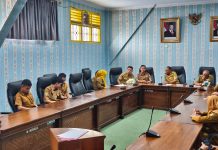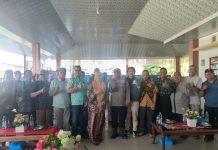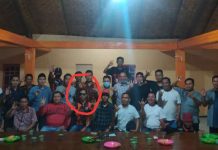I was 13 when my faith in Allah first collapsed. As a child, I had a kind of obsession with God, but after years of conditioning to believe that my burgeoning sexuality was an unredeemable sin, Allah had become a source of fervent terror.
Losing my faith left me with a yearning for a new cosmic connection to the world around me. So when I stumbled across a small aquatics shop in a suburban part of west London, its holographic glint seemingly beckoning me inside was utterly irresistible.
I was being mercilessly bullied at school, and it was obvious to even the ants that crawled the pavements that I was gay as hell, which also happened to be my Iraqi parents’ worst nightmare. Home was a corseted environment where any kind of genuine self-expression was policed.
But the rainbow fish were almost defiant in their flamboyance. I was hypnotised by their ethereal, kaleidoscopic forms that seemed to reject the conformity of the world I was desperately trying to fit into. Strange, undefinable creatures that moved through the sand and the water as if constantly in the process of becoming – I was transfixed.
That was the start of a love affair between me and the ocean that helped me survive the darkest times. Soon afterwards, I got myself a job at the aquarium shop, where I worked every weekend for three years. It became my sanctuary and allowed me to keep an aquarium in my own bedroom. Instead of praying to Allah five times a day, now I would go to the marine oasis glowing magically in the corner.
For a time, my fish tank sheltered me from the realisation that being authentically myself was going to come at a huge price. But at the age of 15, I had started having a recurrent nightmare that Allah would weigh my sins in front of everybody I knew before sending me to hell. After a particularly vivid dream, in which my parents stood watching above the flames, I woke up drenched in sweat. I ran to my fish tank and switched on the blue light to calm myself down.
But something had shifted. Instead of feeling solace, irrationally, I felt anger that my marine companions couldn’t understand what I was going through. I scanned the tank and tried to grab the attention of a pair of clownfish. But they were swimming along happily together – just another couple who had found love – and suddenly the tank made me feel lonelier than ever. I started to realise I had constructed a fantasy that could never replace what I really needed – a community of my own. I remember feeling that even in the queer oceanic universe of my dreams, there was no place for me.
Shortly afterwards, I quit my job at the marine shop and developed a complete aversion to my fish tank, barely able to look at it without the temptation to smash the glass. I couldn’t even bring myself to turn on its lights.
One night, I saw that all my fish and coral were floating rigid on the surface. It was the final confirmation I needed – the tank no longer served me, and couldn’t be the heal-all balm I needed it to be.
My foray into aquatic life might not have lasted, but the experience stayed with me. Once I left home, I found a community of other queer people at university, and found what I was searching for. I discovered the freeing power of drag that finally allowed me to embody the kaleidoscopic wonder of the marine world that had felt so seductive as a closeted teen. But this time, I was able to share in the boundlessness and vibrancy with like-minded people.
Now, as a professional drag queen, I am able to flaunt my natural fluidity on stages all over the world. Dressed in rainbow sequins, and glittery eyeshadow, like a kind of performing aquarium, drag has been the portal into another version of the world that I was looking for – one that is, this time, very much within reach.
Amrou Al-Kadhi is a British-Iraqi writer, drag performer and film-maker. Their work focuses on queer identity, cultural representation and race politics
The post I was obsessed with the shimmering rainbow glory of tropical fish – then I found drag | Amrou Al-Kadhi first appeared on Eatory.my.id.

















